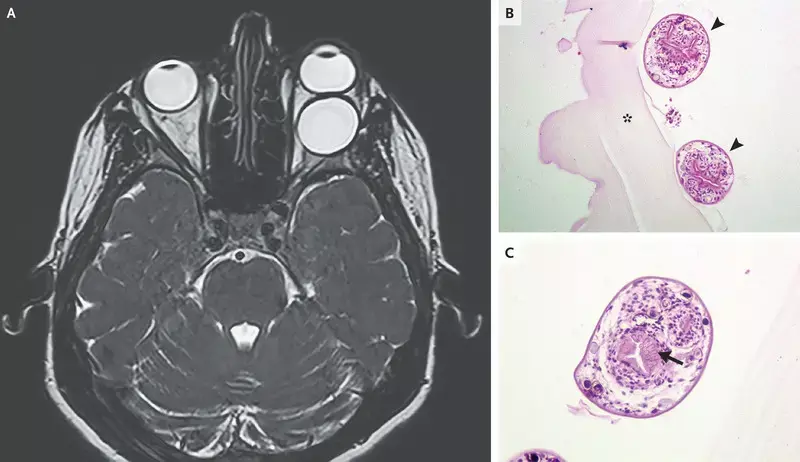- Home
- Medical news & Guidelines
- Anesthesiology
- Cardiology and CTVS
- Critical Care
- Dentistry
- Dermatology
- Diabetes and Endocrinology
- ENT
- Gastroenterology
- Medicine
- Nephrology
- Neurology
- Obstretics-Gynaecology
- Oncology
- Ophthalmology
- Orthopaedics
- Pediatrics-Neonatology
- Psychiatry
- Pulmonology
- Radiology
- Surgery
- Urology
- Laboratory Medicine
- Diet
- Nursing
- Paramedical
- Physiotherapy
- Health news
- Fact Check
- Bone Health Fact Check
- Brain Health Fact Check
- Cancer Related Fact Check
- Child Care Fact Check
- Dental and oral health fact check
- Diabetes and metabolic health fact check
- Diet and Nutrition Fact Check
- Eye and ENT Care Fact Check
- Fitness fact check
- Gut health fact check
- Heart health fact check
- Kidney health fact check
- Medical education fact check
- Men's health fact check
- Respiratory fact check
- Skin and hair care fact check
- Vaccine and Immunization fact check
- Women's health fact check
- AYUSH
- State News
- Andaman and Nicobar Islands
- Andhra Pradesh
- Arunachal Pradesh
- Assam
- Bihar
- Chandigarh
- Chattisgarh
- Dadra and Nagar Haveli
- Daman and Diu
- Delhi
- Goa
- Gujarat
- Haryana
- Himachal Pradesh
- Jammu & Kashmir
- Jharkhand
- Karnataka
- Kerala
- Ladakh
- Lakshadweep
- Madhya Pradesh
- Maharashtra
- Manipur
- Meghalaya
- Mizoram
- Nagaland
- Odisha
- Puducherry
- Punjab
- Rajasthan
- Sikkim
- Tamil Nadu
- Telangana
- Tripura
- Uttar Pradesh
- Uttrakhand
- West Bengal
- Medical Education
- Industry
Rare case of Orbital hydatid cyst reported in NEJM

Dr Stelios F. Assimakopoulos and Dr Markos Marangos at University of Patras, Patras, Greece have reported a rare case of Orbital hydatid cyst. The case has been published in the New England Journal of Medicine.
Hydatid disease is a parasitic infestation by a tapeworm of the genus Echinococcus. Hydatid disease (Echinococcus granulosus) is endemic in the Middle East as well as other parts of the world, including India, Africa, South America, New Zealand, Australia, Turkey, and Southern Europe.
An orbital hydatid cyst is a rare form of hydatidosis, comprising less than 1% of all hydatid cysts reported. The first choice of treatment for orbital hydatid cyst is surgery. Preoperative diagnosis is important, so as to avoid rupture of the cyst and prevent the spread of the parasitic disease. The symptoms include progressive exophthalmos with proptosis with or without pain, disturbance in ocular motility, visual deterioration, and chemosis.
According to the history a 31-year-old woman presented to the emergency department with a history of blurred vision in the left eye over a 4-week period and progressive bulging of the left eye over a 2-week period. Physical examination revealed non-tender proptosis of the left eye, paresis of the left abducens nerve, and reduced visual acuity in the left eye.
A T2-weighted gadolinium-enhanced magnetic resonance image of the brain showed a well-defined, ovoid, cystic, and retrobulbar lesion in the left orbital cavity (Panel A). The optic nerve was displaced nasally and the lateral rectus muscle was compressed. The patient underwent left lateral orbitotomy, and the cyst was completely removed but ruptured during surgery. The area was washed with saline. Histopathological examination revealed multiple protoscolices (Panel B, arrowheads), with central hooklets (Panel C, arrow), adjacent or attached to a thick, acellular laminated echinococcal cyst membrane (Panel B, asterisk). A diagnosis of a hydatid cyst caused by the Echinococcus granulosus tapeworm was made. Thoracic and abdominal computed tomographic scans revealed no extra orbital organ involvement. The patient received a 3-month course of albendazole, and at follow-up 3 months later, she had full recovery of visual acuity.
For further reference log on to:
Dr Kamal Kant Kohli-MBBS, DTCD- a chest specialist with more than 30 years of practice and a flair for writing clinical articles, Dr Kamal Kant Kohli joined Medical Dialogues as a Chief Editor of Medical News. Besides writing articles, as an editor, he proofreads and verifies all the medical content published on Medical Dialogues including those coming from journals, studies,medical conferences,guidelines etc. Email: drkohli@medicaldialogues.in. Contact no. 011-43720751


